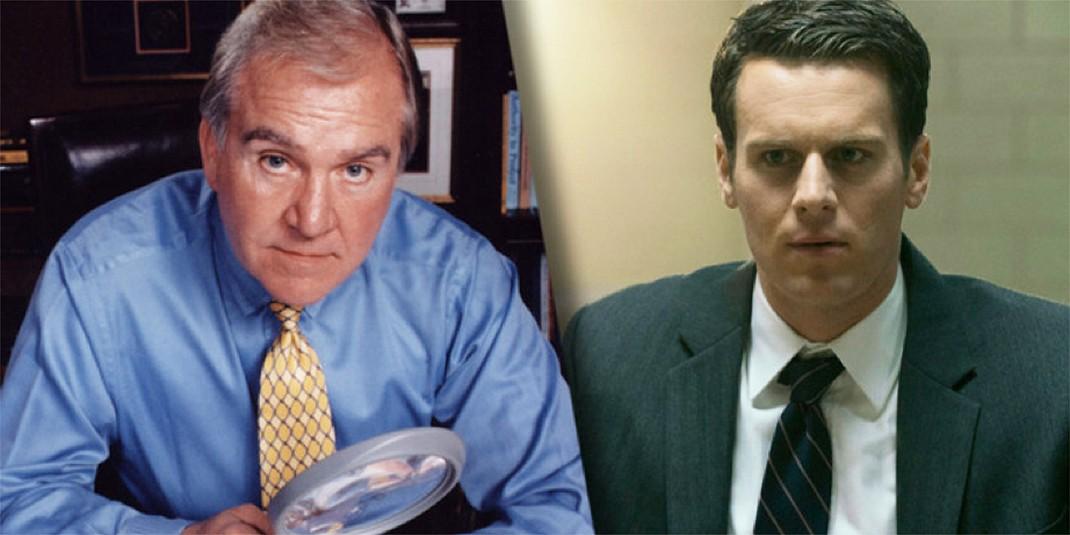In the realm of television crime dramas, few series have managed to capture the intricate complexities of criminal psychology with as much precision and depth as “Mindhunter.” Premiering on Netflix, the show delves into the early days of the FBI’s Behavioral Science Unit, offering viewers a rare glimpse into the pioneering efforts that laid the groundwork for modern criminal profiling. By dramatizing the real-life interviews with notorious serial killers and exploring the psychological theories behind their heinous actions, “Mindhunter” has not only entertained audiences but also sparked a renewed interest in the field of criminal psychology. This article examines how the series has successfully brought the nuanced study of criminal minds to the forefront of popular culture, influencing both public perception and academic discourse on the complexities of human behavior and criminality.
Exploring the Authentic Portrayal of Criminal Profiling Techniques
In a world saturated with crime dramas, “Mindhunter” distinguishes itself by delving into the intricacies of criminal psychology with an authenticity that sets it apart. The series, based on real events, meticulously showcases the evolution of criminal profiling techniques used by the FBI in the late 1970s. The show’s creators, through a mix of in-depth research and consultation with experts, bring to life the pioneering work of agents like John E. Douglas, whose innovative methods transformed the understanding of criminal behavior. Mindhunter’s portrayal of these techniques highlights how psychological profiling became an indispensable tool in identifying and capturing some of history’s most notorious criminals.
- Behavioral Analysis: The show illustrates how agents dissect crime scenes to understand the perpetrator’s psychological makeup.
- Interviews with Convicted Killers: These chilling conversations offer insights into the minds of criminals, aiding in the development of future profiles.
- Data-Driven Techniques: Mindhunter emphasizes the importance of gathering and analyzing data to establish patterns and predict criminal behavior.
The authenticity with which these techniques are depicted in the series not only educates the audience about the historical roots of criminal profiling but also underscores its enduring relevance in modern law enforcement. Through its analytical lens, “Mindhunter” invites viewers to appreciate the meticulous process behind what often seems like instinctive detective work.

Analyzing the Influence of Mindhunter on Public Perception of Criminal Psychology
Mindhunter, the gripping Netflix series, has not only entertained but also educated audiences about the complexities of criminal psychology. By delving into the early days of criminal profiling at the FBI, the show has highlighted the importance of understanding the psychological makeup of criminals to solve cases. The portrayal of real-life figures such as John E. Douglas and Robert K. Ressler, who were pioneers in the field, has lent authenticity to the narrative, sparking widespread interest in the science of behavior analysis.
- Realism in Character Portrayal: Characters based on actual criminal profilers provide a credible insight into the early methodologies of criminal psychology.
- Exploration of Behavioral Patterns: The series emphasizes the significance of identifying behavioral patterns, which has reshaped public understanding of criminal investigations.
- Impact on Public Discourse: By bringing these elements to mainstream media, Mindhunter has influenced discussions on the psychological motivations behind criminal acts.
The show’s intricate storytelling and attention to detail have effectively bridged the gap between academic criminal psychology and popular culture. This has not only fostered a deeper public interest in the field but has also challenged preconceived notions about the predictability and nature of criminal behavior.
The Role of Real-Life FBI Agents in Shaping Mindhunters Narrative
In crafting the intricate narrative of Mindhunter, the creators leaned heavily on the expertise of real-life FBI agents who pioneered the behavioral science that the show brings to life. Their involvement was crucial in ensuring the authenticity of the series, from dialogue to criminal profiling techniques. The agents’ firsthand experiences provided a wealth of knowledge, allowing the show to depict the psychological complexities of both the agents and the criminals they pursue with unparalleled accuracy. By sharing their insights into criminal behavior, these professionals helped shape characters that are both compelling and true to life.
The impact of these agents can be seen in several aspects of the series:
- Character Development: Characters like Holden Ford and Bill Tench were inspired by real agents, reflecting the nuanced approaches and challenges faced by those in the Behavioral Science Unit.
- Dialogue and Interrogation Techniques: The exchanges between agents and criminals are grounded in actual interview techniques, lending authenticity to these tense interactions.
- Case Studies: Many of the cases portrayed are based on real investigations, enriched by the detailed input from agents who lived through these events.
By incorporating the expertise of these pioneering agents, Mindhunter not only entertains but also educates its audience on the intricacies of criminal psychology and investigative methods.

Recommendations for Further Engagement with True Crime and Psychology
For those intrigued by the blend of true crime and psychology showcased in ”Mindhunter,” there are numerous avenues to explore that can deepen understanding and engagement. Consider delving into documentaries such as “The Jinx: The Life and Deaths of Robert Durst” or “The Staircase”, which offer a raw look into real-life criminal investigations and psychological analysis. Additionally, podcasts like “Criminal” and “Sword and Scale” provide auditory insights into the minds of offenders, often featuring interviews with psychologists and criminologists.
- Books: Works such as “The Anatomy of Violence” by Adrian Raine provide a comprehensive look at the biological roots of criminal behavior.
- Online Courses: Platforms like Coursera and edX offer courses on criminal psychology, often taught by leading experts in the field.
- Research Journals: Subscribing to journals like “Criminal Justice and Behavior” can keep you updated with the latest studies and findings in the realm of criminal psychology.
